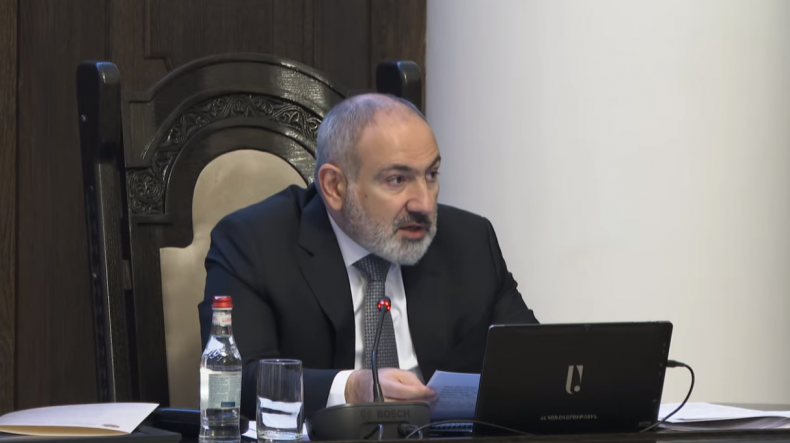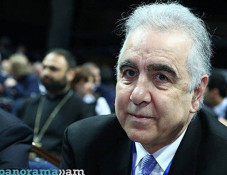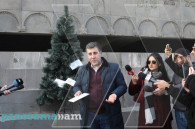
Pashinyan: Azerbaijan shows no interest in ensuring border stability and security
Prime Minister Nikol Pashinyan accused Azerbaijan of continuing its "policy of military coercion" against Armenia following the latest border aggression which left four Armenian soldiers killed and another wounded.
"It seems that Azerbaijan does not show any interest in ensuring border stability and security, and there are many reasons for this. For example, as early as 2022, it was agreed that border security issues should also be included in the mandate of demarcation commissions. In line with the agreement, the Republic of Armenia established a commission on the demarcation of the state border and border security between the Republic of Armenia and the Republic of Azerbaijan, assuming that according to the agreement, the commissions will also work on issues related to border security. And Azerbaijan, contrary to the agreement, called its newly established commission the state commission for the demarcation of the state border between the Republic of Azerbaijan and the Republic of Armenia, omitting the security component," Pashinyan said in his remarks delivered at a cabinet meeting on Thursday.
"These and several other circumstances give grounds for concluding that Azerbaijan continues to pursue the policy of "give me what I want through negotiation, otherwise I will take it with war."
"And what does Azerbaijan want? You have certainly noticed that Azerbaijan regularly talks, as it puts it, about the territories of 4 villages, at the same time refusing to accept that the vital territories of 31 non-enclave villages of the Republic of Armenia are under Azerbaijani occupation. That is, this 4/31 applies to non-enclave villages.
"Our position on this situation is very constructive. We say that in order for the troops to move back from their current positions, it is necessary to reproduce the Armenia-Azerbaijan border on the map and on the ground, and to withdraw the troops of the two countries to the border line. That is, after the reproduction of the border, if it turns out that there are troops ahead of that line, both sides should withdraw. In other words, if there are troops from both sides ahead of the border line, they will have to retreat to the already demarcated border.
"Official Baku is trying to formulate this situation in such a way that the Azerbaijani troops do not retreat from the territories of 31 villages of Armenia in any way. This is not a constructive position. And again, on behalf of Armenia, I reaffirm the readiness of the Republic of Armenia to go to concrete solutions, the principles of which have already been agreed.
"What principles are we talking about? The agreement publicly recorded in writing on international platforms that Armenia and Azerbaijan recognize each other's territorial integrity on the basis of the 1991 Alma-Ata Declaration, and the Alma-Ata Declaration should be the political basis of the border delimitation process. This means that we are left with, essentially, technical work to do: reproduce on maps and on the ground the de jure existing border between the Armenian SSR and Azerbaijani SSR as of 1991, by highlighting their legal bases and resolving the issue. The issue of the so-called exclave/enclaves should also be addressed on the same principle. For example, to determine the territory of Artsvashen, it is necessary to draw its border based on legal documents, and as a result of further negotiations, solve this issue with some formula.
"But Azerbaijan regularly avoids such solutions, trying to follow the path of localization. We even agree to this option and carry out the demarcation even region by region, reproducing the border in each sector, and then carry out the adjustment of the positioning of the troops according to the reproduced border, and move on to the next sector, leaving the issues of exclaves to the very last stage.
"In other words, there are two options: first, we carry out demarcation along the entire border and proceed to its implementation. The second option is that we divide the border into pieces and proceed with the demarcation piece by piece. And, in fact, both options are acceptable to us, within the framework of the above principles. But Azerbaijan seems to avoid this option as well, and our analysis shows that there may be one reason for this, and that reason may be, for example, the start of military operations in some parts of the border, with the prospect of turning the military escalation into a full-scale war against the Republic of Armenia. This intention can be noticed in all statements and actions from official Baku," reads the statement.
Related news
Newsfeed
Videos






























